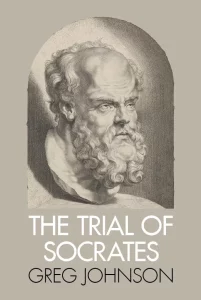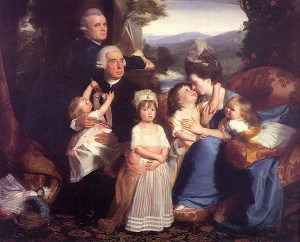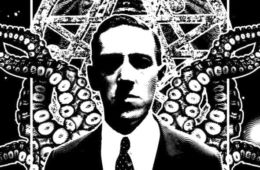Havens in a Heartless World, Part 1: The Family
2,340 words
Christopher Lasch famously described the family as a “haven in a heartless world.”[1] How is the world heartless, and how is the family a haven? For Lasch, the heartlessness of the world has everything to do with the increasing liberalization and economization of life.
Liberalism’s ideal is to replace all unchosen relationships and obligations with chosen ones. For the liberal, if you don’t choose a relationship, if you don’t consent to it, if it is not voluntary, then it is illegitimate. The only legitimate relationships are consensual. Liberalization is equivalent to making all of society into a marketplace, because market transactions are the model of liberal relationships.
But there is a downside to making all relationships consensual. Consent is mutual. Both parties must agree. Which means that both parties must get something out of the relationship. What happens when a relationship no longer works for one party? He can always exercise his right to withdraw. But is this always a good thing?
You might be pleased to have such rights, but your partners have the same rights in relation to you. Thus as social relationships become increasingly liberalized, your status becomes increasingly conditional, i.e. increasingly contingent on the judgments of others. But contingency here is just another word for insecurity, specifically dependency on the choices of others, which ultimately means: dependency on their good opinion of you.
If freedom consists in exercising choice, then liberalizing society certainly creates more freedom, but at the cost of making everyone’s status contingent on the free choices of everybody else. Thus the freer a society is in the liberal sense, the more insecure everyone is about his status. Thus to secure one’s status, one must please others.
This sounds fine when talking about giving a fair day’s work for a fair wage, or a good product for a fair price. But it goes far beyond that. People are not judged merely on their performance or their products. They are also judged on their character, tastes, and opinions. Thus they have a strong incentive to conform to the predominant character types, tastes, and opinions of their neighbors — who are trying to conform to their neighbors in turn.
This is the paradox of liberal individualism. By making an idol of autonomous choice, it makes one’s status entirely dependent on the decisions of others, creating a society in which insecurity is rampant and conformism highly incentivized. Hence the need for a haven, a realm where you are secure enough to relax and simply be yourself.
If all relationships are voluntary and their continuation is conditional on how you please others, what happens when they drop you? Obviously, they look for a replacement. This is another paradox of liberal individualism. In liberal, market relationships, autonomous, self-interested individuals regard each other not as unique individuals, but as fungible, as replaceable, as interchangeable bearers of identical traits, namely the traits that please the choosers. What about one’s unique, individual traits? Obviously, those never come into play if you can simply be dropped and replaced.
Increased choice and fungibility have had a particularly devastating impact on family formation. Why do people who live in small towns, with fewer romantic choices, end up with more fulfilling and stable relationships than people who live in large cities, with endless options?
Shouldn’t expanding one’s options with bigger cities, travel, social media, and dating apps lead to greater fulfillment? Why, then, has it led to greater loneliness? Because as one’s options expand, we keep looking for the perfect bearer of the traits we desire. We keep our options open, instead of settling for, and learning to get along with an imperfect individual; i.e., an individual who is more than our projections and preferences.
What constitutes a haven from liberal individualism? A social realm where one’s status is unchosen and unconditional. A social realm in which you, as an individual, are irreplaceable. In Lasch’s view, the family is one such realm.
But we must be careful here. Isn’t there a contractual element of marriage, with elements of choice, consent, and criteria of performance? This is true. But the marriage bond is the weak link in every family. Parent and child, sibling and sibling, are bound together by blood. But husband and wife are not, as a rule, closely related. They may have a strong biological attraction to one another. But ultimately, the bond between them is created by convention, not nature. This is why husbands and wives are notoriously replaceable.
Still, traditional marriage always aimed at being more than just a transient contractual relationship between two self-interested and fungible parties. Men and women pledge to remain together not just when it is convenient for them as individuals, but in sickness and in health, in poverty or in wealth. Marriage attempts to overcome selfishness and shallow, fungible relationships in order to transform men and women into parts of a greater whole.
But both parties still remain individuals, which is why marriages last until “death do us part.” If a husband and wife literally become a new being, then one could not outlive the other. So the unity of marriage is more magical than real, hence the religious nature of marriage rites.
Of course there’s no real magic in marriage rites and vows. They are only as powerful as we think they are. Which is why as marriage has become secularized and demythologized, marriage rates have slumped and divorce rates have skyrocketed.
There is, however, an actual way that a man and a woman can come together to create a new being: by creating and nurturing children. Being born is intensely illiberal, even anti-liberal, because nobody chooses to be born. Nor does a child choose the rights and obligations of being a child: the right to love and care, the duty to honor one’s parents and look out for siblings. These are birthrights. These are birth duties. Children don’t have the right to make decisions on their own, and parents would be negligent to allow that. Childhood and parenting do not conform to the liberal idea that unchosen rights and obligations are illegitimate.
Blood relationships are also non-fungible. Husbands and wives can be replaced. But parents can’t. You might fantasize about having a different father or mother, but if you had a different father or mother, you would not be you. You are the same person, whether you drink a glass of water or not. The water is the same as well. But you would not be who you are without your father or mother. For parents, it is somewhat different. You as an individual can never be replaced. But (usually) they can have other children.
Moreover, the relationship between child and parent can never be meaningfully reduced to self-interested trading of value for value, since you owe your parents your life, which is a debt you can never repay. Yes, you can be kind to your parents. You can also be kind to your grandparents, to whom you owe your life as well. But such honors are less recompense for life than acknowledgements that such debts can never really be repaid. Beyond that, how can you pay back your long-dead ancestors, who also gave you life? The best you can do is to “pay life forward” by having children of your own, so all your ancestors’ strivings to pass on life don’t come to nothing.

You can buy Greg Johnson’s The Trial of Socrates here.
But if we really wish to understand the family, it is best to dispense with the language of paying, either back or forward. Instead, we should try to understand family life in terms of this “striving” that creates new families and new lives. We call this striving love.
Love is the law of the family. And love is not freedom. Love is necessity, compulsion, force. Erotic necessity, not free choice, brings men and women together. Erotic necessity brings children into being. Love sustains families. Love has the power to bond us together despite sickness, poverty, smelly diapers, sleepless nights, and the long, unglamorous twilight of growing old.
Love is at the core of every self, but love is not rational self-interest. Indeed, love is intensely irrational and self-sacrificial. It drives one to give up one’s independence in the frustrating, ultimately futile attempt to become part of a larger whole.
But love’s real nature is fully revealed when children come along. For what is it to conceive, gestate, give birth to, and nurture children? One literally empties out one’s own substance — one’s own self — to create new people. You, as an individual, are perishing in the process, and no true individualist is comforted by the thought that, although his ego dies, parts of him live on in his children.
How is the family a haven from the heartlessness of the liberal marketplace? The answer is twofold.
First, the family provides more security against misfortune than does liberalism. The family provides statuses and rights that are more secure than those of liberalism, because these statuses and rights are not contingent on the choices of others. A child is born into a family. The mere fact of birth entails unchosen duties and obligations on child and parents alike. Parents are obligated to sustain and nurture children until they are mature and self-sufficient. Children are obligated to give obedience and respect to their parents. Such relationships cannot be equal or reciprocal by their very nature.
Even after we grow up, we can expect our families to give us preference over strangers and to provide us refuge and support in emergencies and to take our side in conflicts — and because we are adults, they can now expect the same of us. Liberalism regards us as all equal and replaceable. The family prefers its own to outsiders, who cannot replace us.
No sensible person would wish to go through life without the sustenance and security of these birthrights. Only a fool would sell such birthrights — transforming himself into a mere disposable economic factor — for the promise of cheaper consumer goods.
Second, the family does not merely provide a safety net in case of disaster. It also encourages more highly developed forms of individuality, taste, and virtue.
Because membership in one’s family is not contingent on the choices of others, families provide a space in which we can more fully be ourselves than the liberal world, in which constant insecurity drives us into the refuge of conformism.
Markets say “yes” to the “given preferences” of individuals, no matter how base and immature those preferences might be. The family has the mission of helping individuals to mature, which entails saying “no” to bad choices in order to promote better choices — “no” to bad taste in order to promote better taste — “no” to clinging to childishness in order to promote growth. The market encourages individuals to pursue rational self-interest, but it does nothing to develop the self and its interests.
Finally, whereas the marketplace encourages an ethos of self-seeking individualism, the family encourages such virtues as giving and receiving nurture as well as group loyalty and solidarity. The things that make the family unique — namely birth, childhood, and parenting — cannot be understood in liberal terms as the rational, self-interested choices of autonomous individuals. Moreover, if human beings were merely autonomous, self-interested individuals, we would have gone extinct long ago. The family must be understood in terms of love.
This implies that the family — and the race — are endangered by any attempt to refound them on liberal moral premises. Liberals find unchosen statuses and obligations revolting. They are repulsed by the non-rational, non-selfish relationships that bond families together. Liberals literally see unborn babies as no different than tapeworms and leeches.
Family planning, birth control, and abortion seek to replace natural, erotic necessity with free choice. Secular weddings, easy divorce, and childless unions all undermine the attempt to meld autonomous individuals into a whole that is greater than themselves.
But don’t we exercise choice in matters of love? We can choose our partners. We can choose not to give in to desire at all. But we don’t choose love itself, any more than we choose to be born. It is just there. We never stand apart from love, as autonomous, rational, self-interested agents. It never stands before us, as an external object that we can drop into our shopping basket or pass on by. Instead, it seizes us from behind, or from within. It humiliates our rationality and autonomy. Love uses us merely as a means by which the race propagates itself. It is enough to make liberals scream, “There ought to be a law!”
Choice inserts itself into the realm of the family in other ways. Can’t parents give up children for adoption? Yes, but in a biological sense, they still remain the parents. Can’t people adopt children? Yes, and they perform the roles of parents, but they aren’t literally parents. Can’t parents fail miserably at being parents, so that others are forced to step in and take on their roles? Yes, but even bad parents remain biologically parents, and one can perform the role of parent without actually being one. Can’t parents disown bad children and children emancipate themselves from bad parents? Yes, but these acts do not alter the underlying biological relationship. You can’t replace your parents or children like you can replace a plumber or a veterinarian, even though relationships can get so bad that you want to try. But the bonds of blood always remain, which is why family breakdowns are far more painful than the breakdown of businesses relationships.
Moreover, in the case of family breakdown, the state steps in, specifically the paternalistic state, the logic of which is just as opposed to the market as the family is, even if the state may brand itself as liberal.
Note
[1] Christopher Lasch, Haven in a Heartless World: The Family Besieged (New York: Basic Books, 1977). Lasch’s title is surely a nod to Marx’s description of religion as the “heart of a heartless world” just before describing it as the “opium of the people.”



